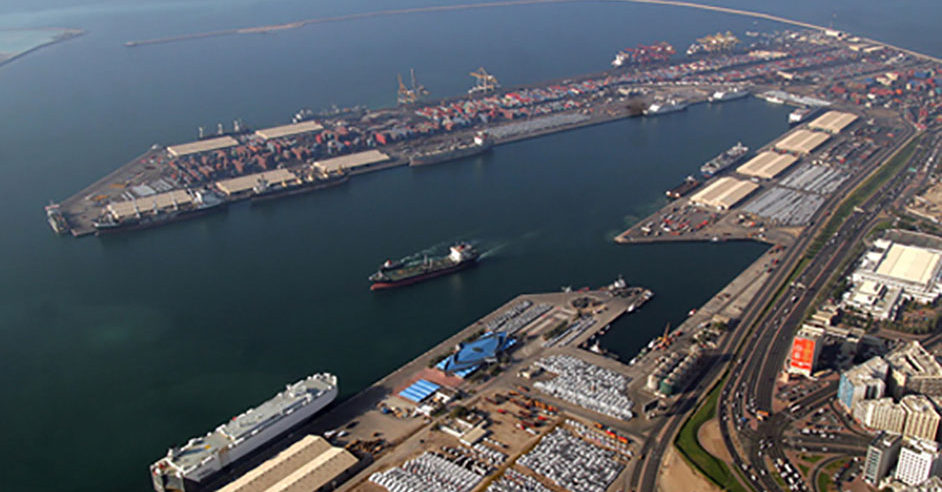This dispute arose out of a purported contract of affreightment (COA) that was governed by English law and subject to English court jurisdiction.
The client under the COA was a Swiss registered company. The English Court found that the COA was entered into by the client’s CEO contrary to the company’s interests. This meant that the COA was void as a matter of Swiss law.
The decision is of more general interest and relevance, however, because of the Court’s construction of the terms of the COA and whether, under English law, the COA was legally binding or merely an agreement to agree.
The background facts Palmali Shipping SA (PSSA) was a freight transport and ship operator and part of the Palmali Group of Companies that owned or chartered and operated ships registered in Malta and Russia. Litasco SA (LSA) was a Swiss company and wholly owned by Lukoil PJSC, a Russian oil and gas extraction company. LSA marketed and sold Lukoil’s products.
PSSA alleged that they entered into a long-term COA with LSA to ship Lukoil product. The initial period was said to be 10 years from 18 January 2005, subsequently extended for a further five years to 18 January 2020.
Key provisions
Clause 1 (“Object”) of the COA provided that:
The Client has requested from the Contractor and the Contractor has undertaken to the Client on a long term (as referred to in clause 10 below) and exclusive basis:
- a) the transportation of all of the Client’s cargoes, in lots of up to 10.000 mts dwt tons, including but not limited to crude oil, heating fuel oil, unleaded gasoline, gasoil undarker 2,5 NPA, fuel oil or/and vacuum gasoil with cargo temperature not less than 45 deg. C at loading port or/and luboil O1ereinafter the “Cargo”): – ex Tatyanka port of Volgograd or/and Astrakhan or/and Nikolaevskiy oil terminal (Kamyshin) with destination for discharge in the Black Sea and/or the Marmara Sea and/or the Aegean Sea and/or the Mediterranean Sea and/or the Caspian Sea ports spb aaaa – ex all the Black sea ports with destination for discharge in the Marmara Sea and/or the Aegean Sea and/or the Mediterranean Sea ports spb aaaa b) transshipment of Cargo through mother storage vessels located at the Kertch strait area.”
2.1. It is agreed between the parties that the Client shall provide to the Contractor throughout each calendar year of the contract period the following minimum quantities of Cargo: Ex Volgograd or/and Astrakhan or/and ex Black sea or/and Caspian sea ports: from 400,000 up to 700,000 tonnes per month of crude oil, heating fuel oil, unleaded gasoline, gasoil undarker 2,5 NPA, fuel oil or/and vacuum gasoil …”
Arguments
It was common ground that no cargoes at all could, or can be, carried between the river ports and the Black Sea between mid-November and mid-April each year.
PSSA maintained, however, that LSA was obliged to offer it cargoes of not less than 400,000 MT and not more than 700,000 MT per month in lots of no more than 10,000 MT throughout the period covered by the COA. It claimed about US$120 million for LSA’s alleged breach of its obligations in failing to do so.
LSA argued that the document was not, and was not intended to be, a legally binding contract.
The Commercial Court decision The Swiss law defence
A significant part of the judgment deals with the Swiss law arguments, witness and expert evidence. In essence, LSA argued that its then CEO had had a plain conflict of interest with LSA when he entered into the COA on its behalf. As a matter of Swiss law, therefore, the CEO had no authority to enter into the COA and it was consequently void.
The Court found that there was such a conflict of interest and that it was sufficiently serious as to merit treating the COA as void. The Court further concluded that PSSA had knowledge of the conflict of interest and dismissed PSSA’s argument that LSA had ratified the COA.
Additionally and independently of any conflict of interest, a transaction entered into by a corporate officer on behalf of a Swiss company would be void if: (i) the corporate officer was in breach of fiduciary duty because the transaction was contrary to the interests of the corporation; and (ii) the contracting counterparty had actual or constructive knowledge of the corporate officer’s breach of fiduciary duty.
Assessing whether the COA was contrary to LSA’s interests required the Court to consider and construe the terms of the COA.
Construction of COA
It was not in dispute that, under cl. 2.1 of the COA, LSA was obliged to provide PSSA with at least 400,000 MT of cargo per month. PSSA argued however, that if clauses 1 and 2.1 were read together, LSA was additionally required to provide to PSSA all cargoes shipped from those specified ports, in lots of 10,000 MT, up to a limit of at least 700,000 MT of cargo a month.
PSSA argued that clause 1 was an operative part of the CoA and it clearly created an exclusivity obligation in favour of PSSA.
The Court concluded that clause 1 was not intended to have operative effect. Rather, it was intended to be a recital, the purpose of which was to set the commercial context for the operative parts of the agreement that followed. That explained the inconsistencies between what was expressly said to have been agreed in clause 2.1 when compared to the generalised statement in clause 1.
Best interests defence
Generally, the legitimate commercial purpose of a long term contract such as the COA was either (i) to hedge against market fluctuations in price by fixing a price applicable over the term or different parts of the term of the contract or providing a contractually mandated price adjustment formula; or (ii) to lock in a service provider to provide a contractually mandated level of service over the life of the contract. Where a long-term contract was entered into for either of these purposes, the parties accepted that over the life of the contract one or other party might benefit more but each was willing to accept that consequence because of the price or supply stability the contract secured.
In this case, on the expert and market evidence, LSA gained no hedging advantage in entering into the COA, nor did the prevailing market conditions at the relevant time require it to lock in a shipper to provide at least the relevant capacity each month. There were also operational impracticalities. The Court, therefore, concluded that the COA was not in LSA’s best interests.
These factors would have been well known to PSSA at the time when the COA was entered into. It could not, therefore, claim to have been acting in good faith when it entered into the COA.
The English law defences
Evidence as to the COA’s lack of commerciality and operational impracticability pointed towards the parties not having intended the COA to be legally binding.
LSA further contended that the parties had not conducted themselves by reference to the terms of the COA and that they never intended the COA to be a binding agreement. The relevant agreements between them were Annual River Agreements executed before and after the purported COA was signed, as well as various charterparties.
The Court also noted clause 11, the Special Freight Rates’ Clause. This provided for freight rates to be agreed by the parties from time to time and subject to an increase or decrease of 5-10% in comparison to the market rates. In the Court’s opinion, the parties had expressly left an essential term of their contract to be agreed in the future.
The authorities distinguished between agreements which were silent on price, when a term was likely to be implied requiring the payment of a reasonable price, and those where the parties had expressly chosen to postpone agreeing something fundamental such as price, where generally such a term would not be implied.
There were also no market rates for vessels of the capacity contemplated by the COA. Furthermore, “from time to time” was too uncertain to be workable. In the Court’s view, there was therefore no binding and enforceable obligation created by the COA other than to the extent that for certain years the parties had agreed a rate that would apply to certain passages to and from certain ports for certain purposes, which were governed by separate annual river agreements with sea passages being made the subject of separate charterparties as and when the need arose.
Furthermore, if the COA took effect on its terms, then on the evidence it would have had adverse commercial consequences for PSSA. The Court concluded that it was inherently improbable that PSSA would have entered into a binding agreement on such disadvantageous terms.
Therefore, if the Court had not already decided that the COA was void as a matter of Swiss law, it would have concluded that, under English law, there was no legal and binding COA in any event.
Comment The judgment is lengthy, but it usefully illustrates the commercial context and purpose of COAs.
The decision is also worth noting because it highlights the importance of ensuring that contractual terms are sufficiently clear and certain to be workable. Otherwise, they may not result in a valid and binding agreement.
Source: Hill Dickinson




